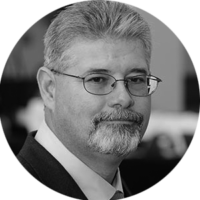2023 FM TRAINING OUTLOOK SURVEY KEY FINDING 4
IMPORTANCE OF FM CREDENTIALS & QUALIFICATIONS
SURVEY STATISTICS
The adoption of professional credentials and qualifications is increasing around the world and across industries. Focused on profession-specific skills, credential-based training programs give individuals the skills and knowledge employers are looking for.
For FM professionals, credentials offer a quick, affordable, and practical career stepping stone. For employers, credentialed staff signify expertise and trustworthiness to internal and external clients.
Credentials & Qualifications Are Increasingly Important in FM.
73% of FM professionals hold a credential or qualification in facility management or another field.
81% of FM managers say a credential or qualification is an influential factor in hiring or promoting FM staff.
Up 5% from 2022
Credentials & Qualifications Deliver Real Value.
of FM professionals would pursue an FM credential/qualification if their employer supported them financially.
of FM staff are willing to invest their own money in FM career development/training.
Up 19% from 2022
of FM staff say FM training and credentials result in better credibility within the organization and with clients.
FM professionals who have earned a credential/qualification say their credential has resulted in:

Job opportunities with a new employer

Internal advancement opportunities

Job stability

Pay raise/increased compensation
INDUSTRY REACTIONS
Join the conversation by reviewing some of the additional insights shared on this topic or by sharing your own.
What Industry Experts Are Saying

The process of gaining a Facilities Management certification leads an individual to think differently about the job. Focus on the operation as a whole becomes important when people begin to understand how the business of Facilities Management can better support the goals and objectives of the company. This results in less unexpected downtime, better efficiency, and happier people that tend to stay longer because the business believes in and invests in them and their long term advancement and earning potential. This is a huge benefit to the company and the individual.
Steve Smith, CFM, CFMJ, MFE, DCEP, DCEP-IT
Director of Physical IT Network, Arvest Bank Operations

While 2023 presents a somewhat brighter picture of the work environment overall, we know the issue of retention and recruitment of FM professionals will be a pressing issue for the foreseeable future. Ensuring our existing workforce is highly skilled and credentialed will help offset the shortfall of professionals available in the external FM pipeline.
Stormy Friday, MPA, Hon. FMA, IFMA Fellow
President, The Friday Group
ProFMI Commission Chair

In order for the facility industry to evolve and successfully exhibit value, it is incumbent upon us, as its beloved practitioners, to continually advance our skill sets and employ new knowledge within our organization, collectively raising the bar. As the saying states, ‘a rising tide lifts all boats’; we must do our part to raise the tide.
John Rimer, CFM, ProFM
President, FM360 Consulting

All FM companies will need to either train or hire-in the skills required for the future requirements of a new look FM due to the rapid advancements in AI, robotics, and adaptive reuse together with the decline in office usage.
Anonymous Survey Participant



Few other industries (besides FM) require that their staff have such a broad range of skills, from boiler and chiller plant operations, to energy management, to customer relations, to budgets and contract administration. In this field, you can’t just be a jack-of-all-trades, you have to be a master of all.
Anonymous Survey Participant










